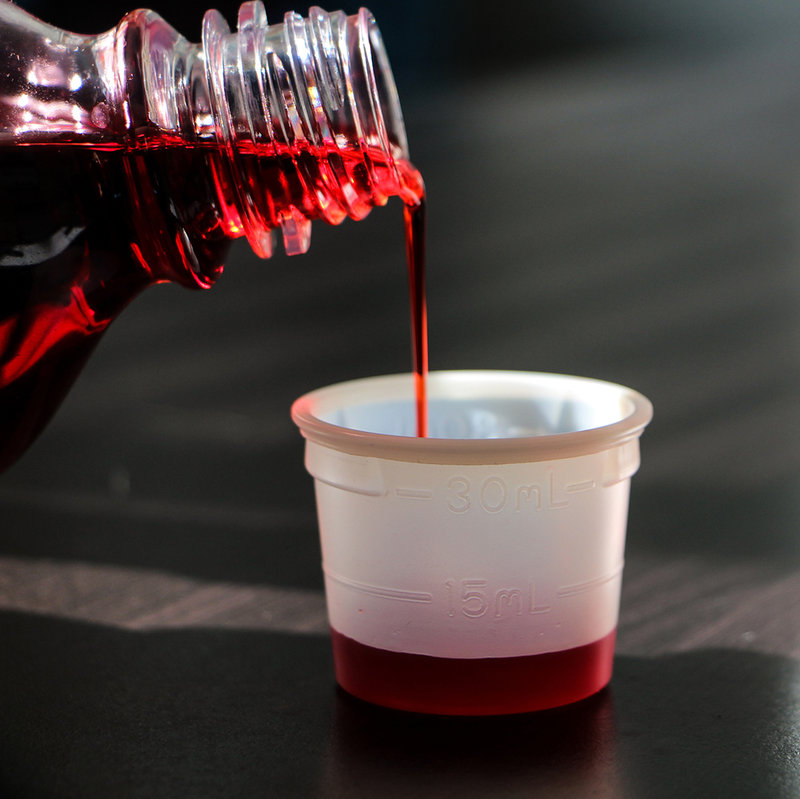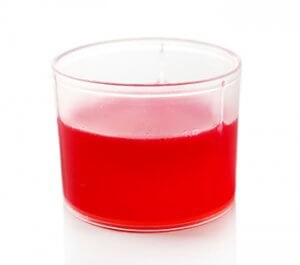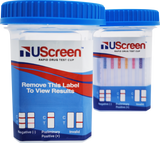Signs of Cough Syrup Abuse

Cough syrup abuse often has similar effects with marijuana. It is known to produce auditory hallucinations and euphoria. Use of cough syrup causes other undesirable effects like depression, dizziness, high blood pressure, impaired judgment, nausea and panic attacks. Aside from these dangerous side effects, cough syrup also causes poor coordination, constipation and fatigue.
Cough Syrup with Codeine and Drug Testing
Codeine is an opiate analgesic, used for the treatment of moderate to severe pain that does not respond to aspirin, paracetamol or ibuprofen alone. It is available in a wide range of over-the-counter preparations for pain and fever in combination with paracetamol (e.g. Panamax Co) or ibuprofen (Nurofen Plus). Some forms of codeine are only available by prescription (e.g. Panadeine Forte). In addition, codeine is a cough suppressant and may be available in prescription-only cough medicines.
Workplace testing of both oral fluids and urine commonly results in non-negative detection of the opiate class of drugs, attributable to self-medication or prescribed use of codeine. These are confirmed by laboratory analysis and usually demonstrate the presence of both codeine and morphine (produced in the body from codeine).
Workplace Responsible Managers sometimes face difficulties with responding to on-site non-negative test results for opiates. Some workplace policies allow the worker to remain at work if, in the judgement of the Responsible Manager and if they confirm that they have taken codeine products, they are fit for normal or alternative duties. Other workplaces will automatically stand down the donor pending confirmation testing, resulting in donors taking unnecessary time away from work, when they have taken codeine products and are fit for work.
This potential dilemma may be resolved when products containing codeine will be available only by prescription from 1 February 2018. This decision aligns Australian availability of codeine with that in most of Europe, the USA, Japan and other countries. A Regulation Impact Statement and modelling of economic, social and regulatory impacts found that up-regulating to prescription only would “… result in reduced deaths from accidental or deliberate codeine overdose, improved quality of life, and reduced codeine dependence and reduced risk of dependency.”
Changes to workplace drug and alcohol policies to require workers to present a copy of their prescription if they claim to be using codeine will reduce the incidence of worker absence due to codeine use. It will also reduce the use of codeine by some workers as a way to gain paid leave while awaiting laboratory confirmation testing.
Codeine is a prescription opioid drug that treats mild pain and
acts as a cough suppressant.
However, because of high rates of abuse, the Drug Enforcement Administration has
moved the substance into Schedule III, so it is more closely monitored and
controlled when it is placed in cough syrups – its primary application in the
US.
Cough syrups have been widely abused for years, especially by adolescents who want to get high or drunk without stealing alcohol or paying for illicit drugs. Since cough syrups are legal for purchase, many people have abused these medicines; however, since the alcohol has been removed and codeine-based cough syrups restricted, abuse patterns in the US have changed.
One of the ways that people abuse codeine cough syrups is by mixingthem into alcoholic beverages or nonalcoholic sodas, creating a dangerously intoxicating mix with several nicknames. The most famous names are “lean,” “purple drank,” “syrup,” and “sizzurp.” These mixed drinks have been popularized by rappersand pop stars.
What Are Purple Drank, Sizzurp, Syrup, and Lean?

Codeine cough syrup’s main ingredient is a mild opioid narcotic, making it a target of abuse for people seeking narcotic highs. Many codeine cough syrups no longer contain alcohol, so purple drank and similar brews often contain alcohol. Some of the cough syrups may also contain dextromethorphan, or DXM, a cough suppressant that replaced codeine in over-the-counter cold and flu medicines. This drug is also intoxicating and dangerous has become a target of abuse. Another sedating drug often found in cough syrups is promethazine.
The mixture of cough syrup, alcohol, soda, and sometimes hard candy like Jolly Ranchers first became popularized in the 1990s. Since then, the DEA has rescheduled codeine so it requires a prescription, and both federal and state authorities track these prescriptions, along with the sale of cough syrups in general. These laws were instituted due to meth production in small labs in the US, which used cough and cold medicines. Purple drank derives its name from the classic purple color of most codeine cough syrups.
Deadly
Risks of Cough Syrup Abuse
There is also a risk of overdosing which is one of the main
causes of death of cough syrup addiction. Another risk is when the cough syrup with
the ingredient DXM is mixed with other medications or ingredients such as
“non-drowsy” antihistamines, SSRI antidepressants and the Yohimbe
herb; they can produce a deadly cocktail.
Detection and Treatment
Cough syrup abuse is usually treated with abstinence and counseling. Rehabilitation is always a good option for recovering addicts since it offers a systematized method for recovery. Withdrawal usually includes a number of undesirable symptoms, depending on the extent of the addiction. Cough syrup abuse can also be detected through drug testing.
How Common Is The Cough Syrup Abuse Problem?
What Are the Effects and Dangers of Cough Syrup Abuse?
In 2014, the DEA believed that one in 10 teens abused codeine cough syrups in this way to get high. The Substance Abuse and Mental Health Services Administration (SAMSHA) reportedin 2008 that 3 million adolescents and young adults, usually between the ages of 12 and 25, had used cough or cold medicines to get high; this number included those using codeine-based cough syrup and over-the-counter DXM drugs.
This kind of substance abuse is also part of hip hop culture, with numerous celebrities ending up hospitalized or dead due to the mixture, or due to mixing sizzurp with other intoxicants like marijuana.
Recent Posts
-
Understanding Fentanyl and Norfentanyl Testing: Key Information
Fentanyl and Norfentanyl are closely related compounds associated with opioids. With numerous testin …Apr 29th 2024 -
Unveiling the Enhanced UScreen Rapid Drug Test Cup: Elevating Precision in Drug Testing
We're thrilled to announce the upgraded UScreen Rapid Drug Test Cup, a testament to our commitment t …Mar 7th 2024 -
DISPELLING MISCONCEPTIONS: UNRAVELING THE TRUTH ABOUT SALIVA / ORAL FLUID TESTING
Oral fluid testing, commonly referred to as saliva testing, is gaining rapid popularity as a reliabl …Jan 9th 2024



